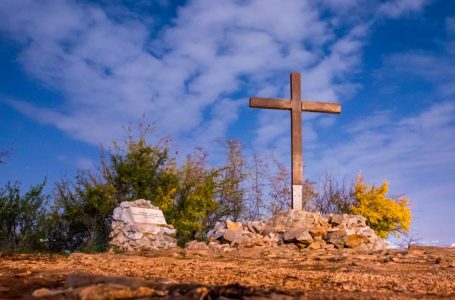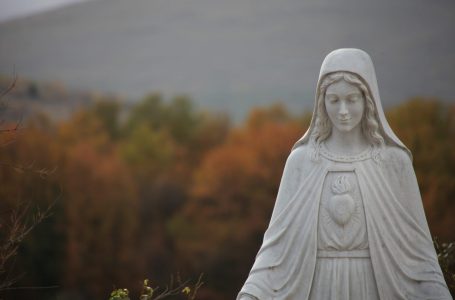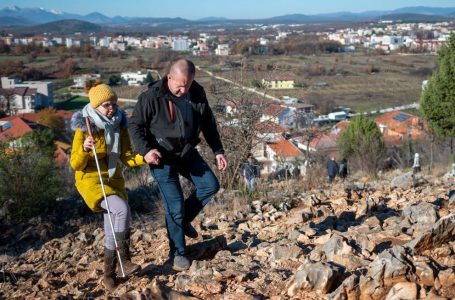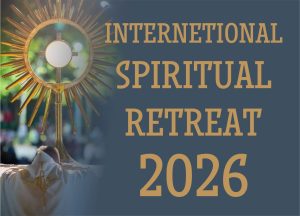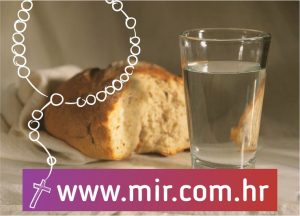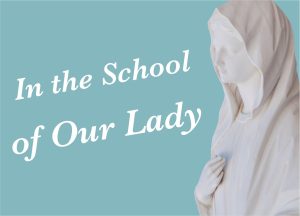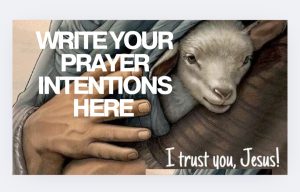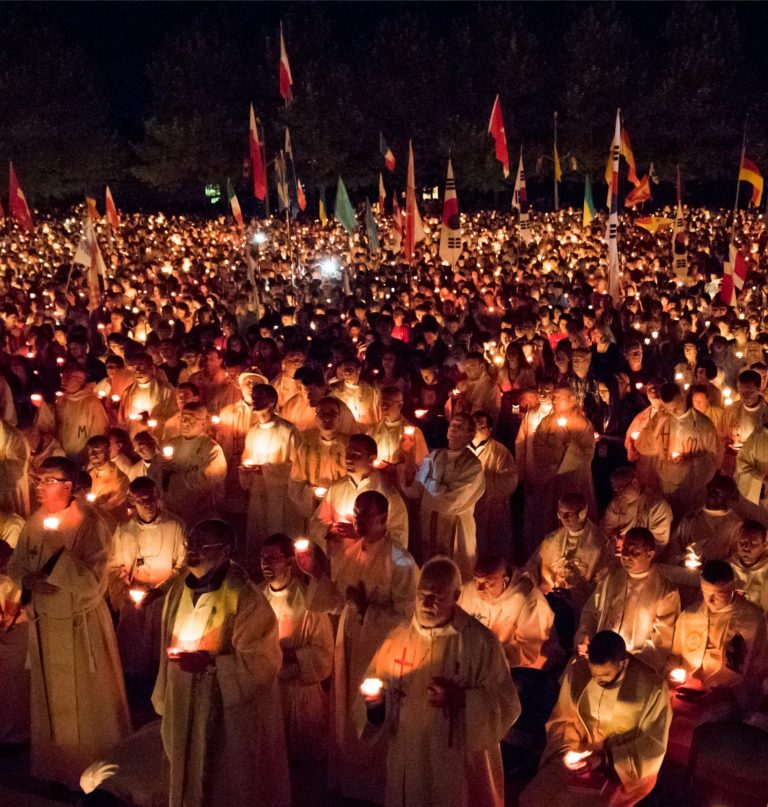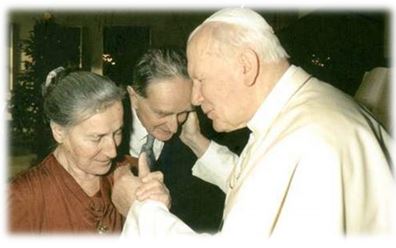
To families, to be strong in God…
In the coming months, we would like to “bring closer” to you the Apostolic Message to the families of Pope John Paul II through the words of his longtime collaborator and family friend – Wanda Poltavska.
Wanda Poltavska, psychiatrist, spent four years in the Ravensbruck concentration camp in Germany during World War II, is a member of the Pontifical Academy for the Protection of Life. In 1967, she founded the Family Theology Institute in Krakow, which she managed for 33 years. Collaborates with the Pontifical Council for Pastoral Care for Health Care Workers and, together with her husband, has been a member of the Pontifical Council for Family Affairs since 1983. Wanda Poltavska has devoted more than 50 years to marriage and family counseling. Wanda and her husband Andrzej have four daughters and eight grandchildren.
1. Meeting
“Celebrating the Year of the Family gives me a welcome reason to knock on your door, show you love, say hello and be with you.”
(Message to families, 1)
During the extraordinary audience with John Paul II of the members of the Pontifical Council for Families, Bishop Stanislav Stefanek, who participated in the meeting, thanked the Holy Father for the Message to Families. The Pope answered him: “Don’t thank me, but read!”
And really, do people read documents written by the Pope? And if so, how? What do they understand and what do they put into practice from what they have read?
In the first short passage, the Pope talks about three things: about his desire to knock on the door, say hello and meet. To knock means that he wants us to open to him, because he would like to enter every door without exception. Those who knew John Paul II closely understand that this was not just a proclamation, but a true desire of his heart. The Holy Father fervently wished that every family would open the door of the heart of Christ, in Whose Name he preaches. Knocking means that he takes the initiative into his own hands, does not wait for someone to come, but goes from one door to another, personally to everyone. The Lord has been showing such an initiative throughout the world since ages – God is looking for a person, and therefore every person can find himself on his way to Damascus.
An insignificant, at first glance, phrase in the introduction of the Epistle to Families hides a great commitment. It challenges all priests and bishops to reach out to people, and this becomes the program for the Year of the Family. Celebrating the Year of the Family should not turn into passive waiting, on the contrary: it should become a special activity – a humble, patient knock on the door, on all doors. Regardless of whether they are opened or not. You have to knock!…
…Knock to make the meeting happen. To meet means to come face to face, not from afar, but directly, personally. It is a meeting on the level of “I” and “you”, when you see who is coming. The meeting encourages acquaintance, even if it is short-lived, it gives an opportunity to look at one’s neighbor. For example, I met someone and therefore know what this person looks like, I meet his gaze and, meeting, create a relationship. The Pope makes it clear what the meeting is about. In the introductory part, he talks about the purpose of this meeting, the purpose of which is to congratulate! Greeting means acceptance. With the heartfelt words that I utter, I accept you and express my desire to be with you. Greeting!…
…I am knocking on your door so that you will recognize me, invite me into your home, and so that I can show my love, simply because you are my neighbor! This is the content of the first challenge. At first glance, it seems simple, but it is not easy! People so often close doors in front of each other, so often do not want to know each other, say words that are not at all suitable for greeting?! …
…This challenge is addressed to all people – to families at odds, where their members do not speak to each other for years; to lonely people who have been abandoned, and no one knocks on their door, and only a few days after their death someone notices that they are gone; to people who are numb in their pain and anger, who have turned their backs on everyone. The Holy Father presented the Year of the Family as a task to be fulfilled.
Friends of Ivan Paul II are spouses Wanda and Andrii Poltavski
2. The family is the way of the CHURCH “The family originates from the same love with which the Creator embraces the world he created…”
(Message to families, 2)
…The fate of humanity is closely connected with the path of the Church. The priest becomes a witness when the Sacrament of Marriage is performed; the priest baptizes the child; the priest is the confessor at the first confession and at all subsequent confessions; the priest, as well as the bishop, are present at the Sacrament of Anointing; the priest is present at the moment of death and at the funeral, the priest serves the daily Holy Liturgy, during which the presence of God is realized and he gives Him to people as food! Without a doubt, the Church is constantly with people, with humanity, with each individual family in the parish…
…The Pope draws attention to the fact that “the Church considers service to the family as one of its main tasks.” He emphasizes this so that no one forgets about such service. The Church is for the family, but the family is for the Church! And although the Holy Father does not mention it here, I mean the community, which is and should be the parish. It is through the parish that service and help to families can take place. People have the opportunity to get to know their superior, their pastor, and he has the opportunity to get to know them. To serve them, he must know their moods, needs, and they, in turn, must allow him to know it. Sometimes I ask people, who is the rector in their parish? Very often it turns out that they do not even know his name, what he is; sometimes I hear some critical statements. …
…Do many parishioners realize how difficult it is to serve people and families? How many difficult human problems the priest’s heart has to contain! The priest sits and listens in the confessional, and there is a long line in front of the confessional, which surprises people from the West. People sometimes lack imagination. How rarely even believers think about the fact that such a service requires a person’s spiritual powers, as well as a strong nervous system. Despite the fact that the priest received the special grace of vocation, he remains human, he gets tired of so many things that he has to do, things that require a lot of concentration and attention…
… Every human life that seeks to achieve salvation still needs the Church and a priest who gives a person the opportunity to be freed from sin in confession, where sins are truly forgiven. Family is the way of the Church! Moreover, the family is the creator of the Church, because all priests also come from families, one might add — from good families! …
…The Church is on its way to salvation through the family, in which the only condition for salvation – holiness – must be realized. The Church places signposts on this path, but people, unfortunately, do not know how to use them, nor can they understand what a gift their membership in the Church is. …
…The message with its section “The family is the way of the Church” can cause gratitude for the fact that the Church exists at all and that it serves the family.
Reflections on the Church and the family are taken from the book:
To families, to be strong in God…,
Wanda Poltavska (SALI-FOTO, 2010).


